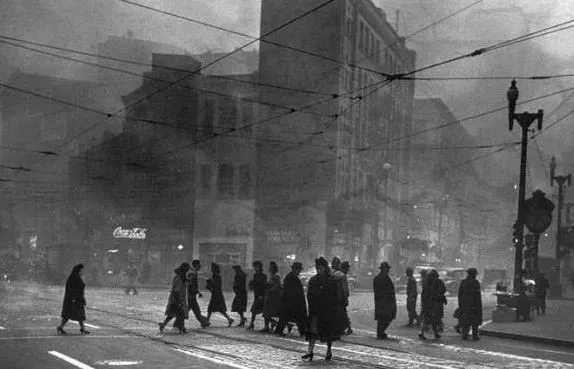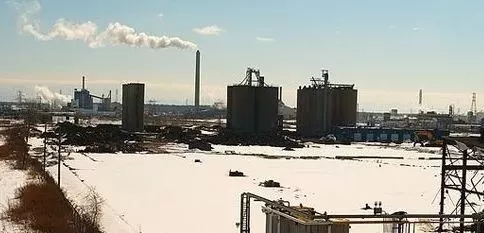Does environmental protection save an industrial country or destroy an industrial country? Is it the chemical or environmental protection that should be rectified?
Xiaobian recently read an article saying that environmental protection will destroy an industrial country. Come together to see ~ ~ ~
In 90s, South Africa was a developed country, with very developed industry, high life expectancy, good income, stable security and good medical level. The first heart transplant operation in the world was completed in South Africa. Our textbook reads: “ South Africa, developed country ” In less than twenty years, however, poverty and disaster have been entangled with the plague.
In 90s, there was a continuous development of industrial technology in South Africa. So the western international environmental organization was looking for a door to show that South Africa was already a developed country. We should pay attention to protecting the environment. Otherwise, all days are fog and haze, not good for health and so on. Repeatedly, all kinds of news reports have been exaggerated, and the South African people have been complaining.

When public opinion is boiling, the West has come up with a solution. First, they let the president of South Africa, Mandela, look at the green and green photographs of the European and American countries (the ones selected in summer and sunny days). Then he advised him to implement “ the most stringent environmental bill &rdquo in history.
Mandela believed deeply, so he said that the people should live between the blue sky and the white clouds and green hills and green waters, and South Africa should seek benefits for the people. Mandela's approach drew a cheer from the South African crowd: … … so South Africa began the mode of de industrialization.

Here we need to talk about industrialization governance.
The &ldquo suggested by the west to South Africa; to de industrialization to govern ” it is not to tear down factories and restore nature. It requires that the state no longer give preferential treatment to industrial manufacturing. For example, taxes, loans and so on are no longer exemption from the manufacturing industry, compensation and so on, and at the same time the implementation of stringent environmental protection bills, such as the fine no upper limit, for example, can not be allowed to start by environmental assessment, such as … … in such a way to achieve energy conservation and reduction, the purpose of harnessing pollution. However, this way of governance proved to be suicide.
South Africa has been carrying out these policies, and as the tax increases, South Africa's industrial enterprises have failed a large number of industrial enterprises, and a group of more powerful and reluctant support, but then South Africa has added a special environmental governance tax on the industry for the governance environment, and no upper limit. The most severe penalty was … &hellip, which led to the collapse of the last batch of competitive manufacturers in South Africa.

At the same time, the Western foreign-invested enterprises, which had already been covetous, rushed to South Africa like wolves and bought these bankrupt enterprises at the general price of cabbage. At that time, South Africa was already in a hurry because of the bankruptcy of the industrial industry, the unemployment of a large number of people, the avalanche of the economy and the turbulence of the society.
So for “ inviting ” and especially allowing foreign companies to enjoy preferential policies as long as they come to South Africa, including tax relief, non acceptance of environmental reviews, no need to accept environmental fines, and so on; … so in a few years, the industry of South Africa is all transferred from native people to the West. In the hands of a man.
Subsequently, these enterprises were mad in production, and GDP in South Africa rose like a rocket. Unfortunately, these GDP no longer have a penny belonging to their own people in South Africa, but they have all gone into the pockets of foreign-funded enterprises. After turning around, South Africa not only lost its green hills but also lost everything.

Of course, with the smooth transfer of assets, the western media group has ceased attacks on South Africa's environmental protection. So even today's South Africa is still haze, but there is no media report, so no one is complaining. Besides, the people of South Africa who are hungry have no time to take care of the haze.
Looking back at the current situation of environmental protection in China, did we see the shadow of the situation in South Africa?
Dreadful! It's really terrible! It is undeniable that there are alarmist elements in the article, but it has caused us to think about the current environmental storm.
1, is environmental storm too fierce?
It's too late! “ one size fits all ” “ all will shut down ” will punish the polluting enterprises at the same time will hurt the enterprises that meet the requirements? To be sure, our attitude towards environmental protection is resolute. But the adverse effects brought about by the large scale stop production should be considered in advance.
2, guide enterprises to environmental protection transformation, whether in place?
Now many enterprises want to transform, but it is not clear how to transform. Without the support of technology, talent and tax, the difficulties faced by small businesses can be imagined.
3, control the price fluctuation in the market of chemical products
After the factory is shut down, the original products may be short of market. The original raw materials may be surplus in the market.
4. After the shutdown of the enterprise, how do the employees settle down?
Factory shutdown will lead to the loss of a large number of workers, especially those who have worked in factories for many years. Old and small, but facing unemployment, changing jobs and changing careers is a cruel thing.
Source: micro LINK chemical industry and so on



